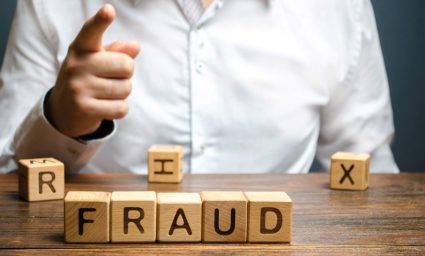 When you face financial difficulties, it’s completely normal to experience feelings of stress and a strong desire to find solutions that can help you regain stability. The daily struggle to meet living expenses can make appealing offers seem irresistible, even when they come from untrustworthy sources. While we always recommend steering clear of high-interest payday loans or excessive borrowing, it’s vital to maintain a critical mindset even when presented with seemingly legitimate financial help. Many offers that look like quick solutions are actually traps set by malicious scammers aiming to take advantage of your precarious situation.
When you face financial difficulties, it’s completely normal to experience feelings of stress and a strong desire to find solutions that can help you regain stability. The daily struggle to meet living expenses can make appealing offers seem irresistible, even when they come from untrustworthy sources. While we always recommend steering clear of high-interest payday loans or excessive borrowing, it’s vital to maintain a critical mindset even when presented with seemingly legitimate financial help. Many offers that look like quick solutions are actually traps set by malicious scammers aiming to take advantage of your precarious situation.
Currently, there is a wide array of scams specifically designed to exploit people’s financial vulnerabilities, which is why it is so important to remain alert and educated about these threats. A key principle for spotting scams is to adhere to this guideline: if an offer appears too good to be true, it most likely is. In this detailed guide, we will illuminate various scams that target those grappling with financial hardships, equipping you with the necessary knowledge to differentiate between legitimate opportunities and deceitful schemes. Your awareness is your first line of defense against these fraudulent practices.
Protect Your Tax Refunds: Understand Your Rights and Responsibilities
There are legitimate ways to claim tax refunds for various allowable expenses, such as work-related tools, uniforms, and mileage. However, these processes require interaction with a tax rebate services firm, meaning you will need to give them access to your tax records. It’s crucial to realize that no government agency, including HMRC, can accurately determine your entitled refund without your proactive involvement or consultation with a qualified tax professional. Therefore, you must remain cautious when receiving unsolicited messages claiming that “HMRC has a tax refund of £261 waiting for you.” These messages often use realistic figures, cleverly sidestepping the outrageous claims typical of other scams, such as the infamous Nigerian Prince schemes. Instead, these messages can lead you to websites where you might unknowingly divulge sensitive information, leading to identity theft or significant financial losses.
To verify whether this communication is a scam, meticulously examine the sender’s details. If you receive a text message, check the originating phone number for authenticity. It’s wise to avoid responding to such messages and consider reaching out to HMRC directly for confirmation. Keep in mind that HMRC usually communicates through official letters or emails sent to your registered address, rather than unsolicited text messages. Additionally, you now have the capability to access your personal online tax account, where you can view notifications directly from HMRC. If you receive an email, scrutinize the sender’s address carefully; it should originate from a recognized HMRC domain. Always resist the temptation to click on any links contained in suspicious messages.
Stay Alert: How to Identify the National Insurance Number Scam
Recent reports, including those from the Daily Express, reveal that numerous individuals have fallen victim to the National Insurance scam, which primarily operates via phone calls. This method is particularly concerning because scammers can contact you through both your landline and mobile devices. The scam typically begins with a distressing message alleging that your national insurance number has been compromised. This alarming tactic is designed to provoke a sense of urgency, compelling you to press a button to speak with someone who can supposedly help you. However, this action often results in incurring premium call charges while the scammers gather your personal information.
To assess whether such a call is a scam, remember that legitimate organizations will never ask you to press a button to continue the conversation. If you feel uncertain, simply hang up and conduct a quick online search for the phone number. A brief investigation can often indicate whether the number is linked to known scams, helping you to protect yourself from potential fraud.
Recognize and Avoid the DPD or UPS Delivery Scam
Another widespread scam involves receiving unsolicited texts or emails that claim a parcel is awaiting your action. These messages typically encourage you to click on a link to provide personal details, which is a significant warning sign of possible fraud. To protect yourself, closely examine the source of the email. Scammers frequently use distorted or unusual email addresses that do not match those of legitimate businesses. Additionally, check any recent orders you may have placed on platforms like Amazon or eBay; these platforms usually offer comprehensive tracking information.
It’s also essential to note that while carriers like DHL may impose duties on international shipments, they will always provide specific details regarding your delivery and its origin. If you receive vague messages about package deliveries without having made prior orders, exercise extreme caution. Staying informed about personal finance scams is crucial to safeguard yourself from becoming a victim of these schemes. If you find that financial struggles make these scams seem appealing, consider reaching out to us; we can assist you with our debt consolidation loans for bad credit. Our team is dedicated to helping you navigate your financial challenges safely and effectively.
The Article Finance Scams to Watch Out For Was Found On https://limitsofstrategy.com

